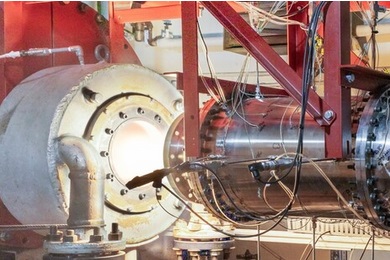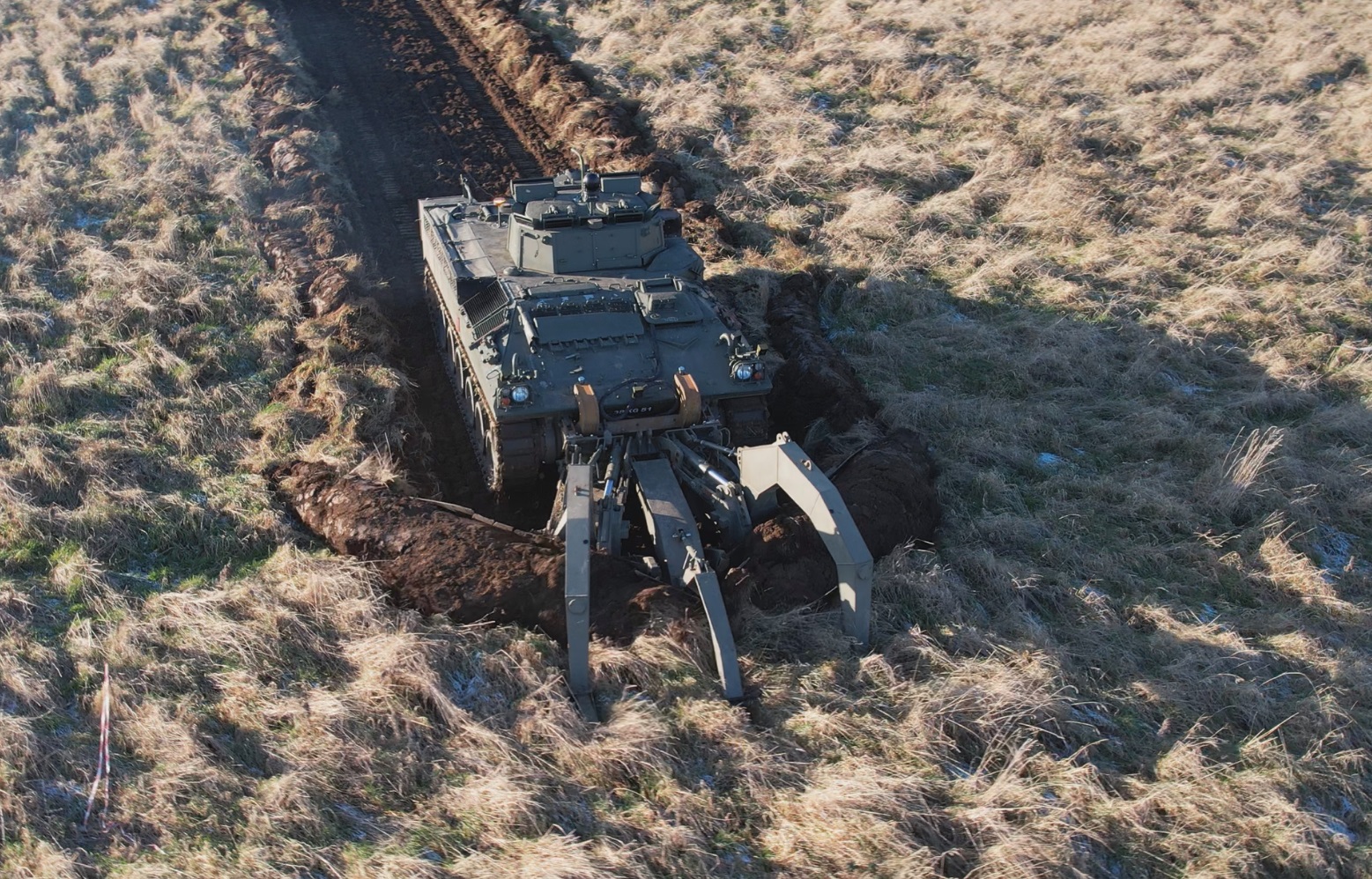International coalition to develop GCAP

Image courtesy BAE Systems
The UK will work with Italy and Japan to adapt and respond to the security threats of the future, through this unprecedented international aerospace coalition announced by the Prime Minister Rishi Sunak today.
The Prime Minister will visit a UK RAF base today to launch the first major phase of the programme, which aims to harness the combined expertise and strength of our countries’ defence technology industries to push the boundaries of what has been achieved in aerospace engineering to date.
Due to take to the skies by 2035, the ambition is for this to be a next-generation jet enhanced by a network of capabilities such as uncrewed aircraft, advanced sensors, cutting-edge weapons and innovative data systems.
The Prime Minister said: "The security of the United Kingdom, both today and for future generations, will always be of paramount importance to this Government.
"That’s why we need to stay at the cutting-edge of advancements in defence technology – outpacing and out-manoeuvring those who seek to do us harm.
"The international partnership we have announced today with Italy and Japan aims to do just that, underlining that the security of the Euro-Atlantic and Indo-Pacific regions are indivisible. The next-generation of combat aircraft we design will protect us and our allies around the world by harnessing the strength of our world-beating defence industry – creating jobs while saving lives."
The joint announcement highlights the close government, military and industrial links between the nations and reinforces the UK’s international commitment to future combat air. The programme will build on the substantial progress already made in the UK by BAE Systems, Leonardo UK, MBDA UK, Rolls-Royce and the UK Ministry of Defence who have been working in partnership since 2018 as Team Tempest to research, evaluate and develop a host of next generation future combat air systems capabilities.
It is anticipated that more likeminded countries may buy into GCAP in due course or collaborate on wider capabilities – boosting UK exports. The combat aircraft developed through GCAP is also expected to be compatible with other NATO partners’ fighter jets.
During a visit to RAF Coningsby today, the Prime Minister will view the Typhoon aircraft which have been at the heart of the UK’s air policing for two decades. The new combat aircraft designed by GCAP is expected to replace the Typhoon when it comes out of service. The Prime Minister will also meet Quick Reaction Alert Station engineers and pilots, who protect the UK’s skies 24 hours a day, seven days a week.
The UK, Italy and Japan will now work intensively to establish the core platform concept and set up the structures needed to deliver this massive defence project, ready to launch the development phase in 2025. Ahead of the development phase, partners will also agree the cost-sharing arrangements based on a joint assessment of costs and national budgets.
Alongside the development of the core future combat aircraft with Italy and Japan, the UK will assess Britain's needs on any additional capabilities, for example weapons and Uncrewed Air Vehicles.
A report by PricewaterhouseCoopers last year, suggested the UK taking a core role in a combat air system could support an average of 21,000 jobs a year and contribute an estimated £26.2 billion to the economy by 2050.
Defence Secretary Ben Wallace said: "This international partnership with Italy and Japan to create and design the next-generation of Combat Aircraft, represents the best collaboration of cutting edge defence technology and expertise shared across our nations, providing highly skilled jobs across the sector and long-term security for Britain and our allies."
Charles Woodburn, Chief Executive, BAE Systems said: "The launch of the Global Combat Air Programme firmly positions the UK, alongside Japan and Italy, as leaders in the design, development and production of next generation combat air capability. With our UK industry partners, we look forward to strengthening our ties with Japanese and Italian industries as we work together to deliver this programme of huge importance to our global defence and security. The agreement with Japan and Italy is fundamental to meeting the goals set out in the UK Combat Air Strategy and is set to create and sustain thousands of high value jobs and benefit hundreds of companies across the UK, contributing to long-term economic prosperity and safeguarding sovereign combat air capability for generations to come."
Mark Hamilton, Managing Director Electronics UK, Leonardo said: "The emergence of a single international programme, backed by three Governments, represents a major point of maturity for our shared combat air vision and a strong vote of confidence in the readiness of industry to deliver the programme. At Leonardo, we are privileged to be a core part of this endeavour. The future aircraft’s integrated sensing, non-kinetic effects and integrated communications (ISANKE & ICS) will be at the heart of the system’s capability, ensuring that our Armed Forces can effectively respond to the threats of the future. We look forward to working with our International colleagues to deliver this critical capability."
Chris Allam, MBDA Executive Group Director Engineering and Managing Director UK said: "Today’s announcement is a significant step in the internationalisation of the Combat Air System Programme which will drive a step change in future capability and help sustain and develop critical skills across the defence industry. MBDA was founded on the principle of nations working together to deliver sovereign capability, leveraging innovation and driving economic benefits. We have a proud history of collaboration with Italy and welcome the opportunity to strengthen our relationship with Japan. We will work with multinational industrial partners to enable seamless integration, rapid evolution and effector networking to make any platform, any sensor, any effector, a reality."
Alex Zino, Executive Vice President, Business Development and Future Programmes, Rolls-Royce Defence said: "We welcome today’s announcement and the positive momentum we are building with our partners in Japan and Italy towards developing power and propulsion technology for the next generation fighter aircraft. In December 2021, we announced a target to jointly design, build and test an engine demonstrator. This work is progressing well and on track to deliver. Today’s announcement reinforces the strong and longstanding relationships we value with both Italy and Japan and I look forward to us deepening that collaboration through this programme."
ADS Chief Executive Kevin Craven said: “Today’s announcement will see UK industrial partners play a major role in the delivery of the new Global Combat Air Programme, developing a next generation fighter aircraft.
“This programme is expected to provide tens of thousands of skilled jobs in the UK, vital high value exports and contribute £26 billion to the economy by 2050.
“As the project moves forward ADS will work to ensure that our members, large and small, have access to the fullest range of opportunities for involvement, ensuring the benefits to prosperity are maximised for communities in every part of the UK.”
GCAP sits alongside the UK's other defence cooperation with international allies, including the AUKUS partnership and NATO – to which the UK remains the leading European contributor.
The UK defence industry is already in the vanguard of advanced aerospace engineering. At BAE Systems’ new ‘factory of the future’ in Lancashire, for example, the company is pioneering the use of advanced 3D printing and autonomous robotics in military aircraft.
Alan Fisher, CEO, of Farnborough Aerospace Consortium (FAC), said: “Collaboration has been a buzz word in aerospace, aviation and defence for many years.
“Bringing businesses and countries together to utilise their expertise is something we have been calling for and something we have been doing.
“The collaboration between the UK and France gave us Concorde, and this new jet is likely to be as groundbreaking.
“Furthermore, at Farnborough we are at the centre of the UK’s aerospace industry and we’ll be working hard to ensure the region benefits from the collaboration.
“We have the expertise, technology and experience – especially among SMEs – to make a telling contribution to this new jet.
“Within the supply chains there will be huge opportunities for UK businesses to take advantage of this project.
“Those behind the collaboration need congratulating, and to bring Labour’s defence Minister on board shows there is real determination to make it happen.”













